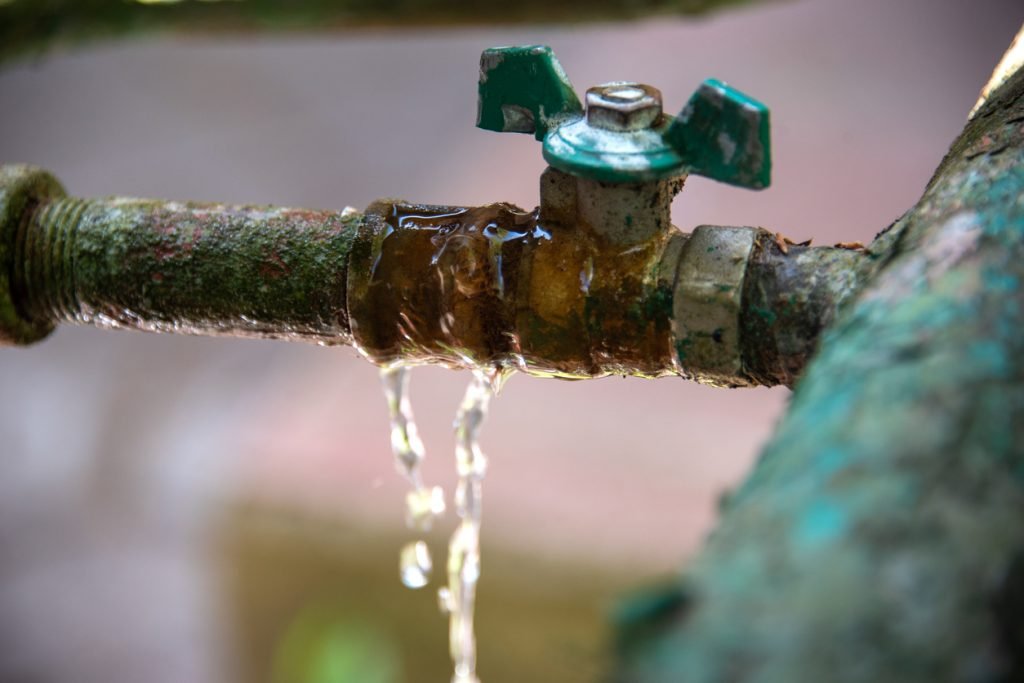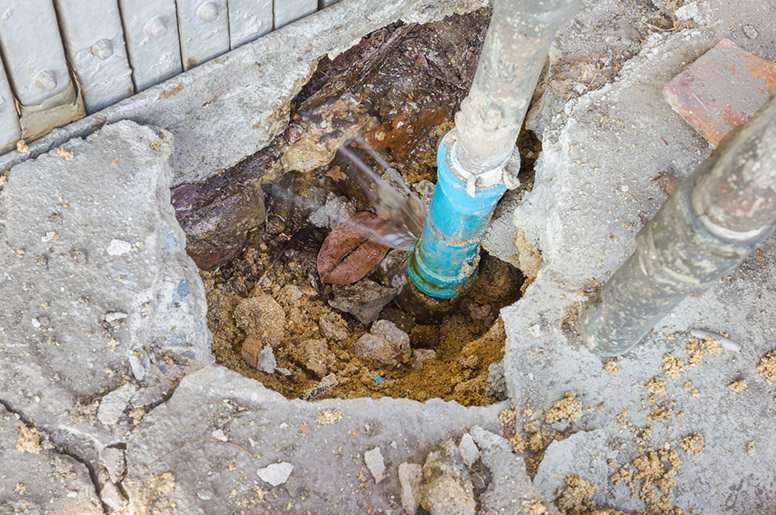Absolutely! Even something as seemingly minor as a small leak can spell big trouble down the line. Take it from The Pro Plumbing—those drips might not seem like much at first, but they can wreak havoc over time. Picture this: slow water damage creeping into walls or floors, inviting mold growth that’s not just unsightly but also harmful. Plus, if left unchecked, it could weaken structures, leading to costly repairs. That’s why it’s crucial to address even minor leaks promptly—they save you headaches and cash in the long run.
Understanding the Impact of Small Leaks
Understanding the impact of small leaks involves recognizing their potential to cause significant structural and financial damage over time. Professional plumbing services play a crucial role in this process by offering expertise in leak detection, repair, and preventative maintenance. They use specialized tools and techniques to identify hidden leaks and mitigate their effects on homes and businesses. By partnering with plumbing services, property owners can ensure early intervention and effective solutions, safeguarding against the long-term consequences of untreated leaks.
Imagine this scenario: You notice a tiny drip from your kitchen sink or a slight dampness around a pipe in your basement. It’s easy to dismiss it as minor, especially if it’s not causing an immediate flood. However, that small leak has the potential to lead to much larger problems over time.
1. Structural Damage
One of the most significant risks posed by small leaks is structural damage. Water is incredibly insidious—it can seep into the tiniest cracks and crevices, gradually weakening building materials such as wood, drywall, and even concrete. Over time, this can compromise the integrity of your home’s structure.
For instance, a leak in a bathroom that goes unnoticed for months can lead to rotting of wooden supports or even the growth of mold behind walls. Both scenarios can weaken the framework of your home, potentially leading to costly repairs and renovations.
2. Mold and Mildew

Mold thrives in damp, dark environments, making your home the perfect breeding ground if there’s even a small leak. It can start as a seemingly innocuous patch but quickly spread throughout walls, floors, and ceilings. Not only does mold damage surfaces, but it also poses serious health risks, especially for those with respiratory issues or allergies.
Even if you don’t see visible mold, the presence of moisture from a leak can create conditions ripe for its growth. This can impact indoor air quality and necessitate extensive remediation efforts to eradicate.
3. Increased Utility Bills
Leaving a leak unchecked doesn’t just harm your home—it hurts your wallet too. That steady drip from a faucet or pipe may not seem like it’s costing much initially, but water wastage adds up. According to the Environmental Protection Agency (EPA), household leaks can waste nearly 10,000 gallons of water annually in the average American home—enough to fill a swimming pool!
Beyond the wasted water itself, leaks can also lead to higher utility bills. That’s because your water meter keeps running, even if the water isn’t being used for anything productive. Addressing leaks promptly can help you save money on your water bill in the long run.
4. Electrical Hazards
Water and electricity are a dangerous combination. A leak that affects electrical wiring or appliances can create shock hazards and increase the risk of electrical fires. Even a small amount of moisture near electrical outlets or appliances can compromise their safety, putting your household at risk.
5. Damage to Personal Property
A small leak can damage personal property such as carpets, furniture, and electronics, potentially leading to costly replacements. Leak detection services can find leaks underground using specialized equipment like acoustic sensors or thermal imaging. These technologies allow professionals to pinpoint the exact location of hidden leaks in pipes or irrigation systems without extensive excavation, minimizing disruption and preventing further damage to property and landscaping.
Water doesn’t discriminate—it can damage personal belongings as well. Whether it’s soaking into carpets, ruining furniture, or damaging electronics, leaks can cause financial losses beyond structural repairs. Items that are susceptible to water damage need to be protected from leaks to avoid costly replacements.
The Pro Plumbing Perspective

The Pro Plumbing emphasizes the importance of non-invasive leak detection methods in Alhambra. By utilizing advanced technologies like acoustic leak detection and thermal imaging, they can locate leaks without disrupting property or landscaping. These methods are crucial for swiftly identifying hidden leaks in walls, floors, or underground pipes, ensuring timely repairs and minimizing damage. Pro Plumbing prides itself on using cutting-edge techniques to provide efficient and effective plumbing solutions while prioritizing customer satisfaction and property preservation.
To delve deeper into the topic, let’s hear from The Pro Plumbing, experts who deal with these issues daily. They emphasize that while small leaks may seem inconsequential, they are often indicators of larger underlying issues. According to The Pro Plumbing team, here are some insights:
Early Detection Saves Money:
“We’ve seen countless cases where a simple leak turned into a major repair job because it wasn’t addressed promptly. Homeowners can save significant amounts by catching leaks early and getting them fixed before they escalate.”
Educating Homeowners:
“Many people underestimate the potential damage of leaks. We educate our clients on the importance of regular inspections and maintenance to prevent costly repairs down the line.”
Technological Advancements:
“Advances in plumbing technology, such as leak detection systems and smart water meters, have made it easier to identify and address leaks before they cause extensive damage. Investing in these technologies can provide peace of mind and save money in the long term.”
How to Detect and Address Small Leaks
To detect and address small leaks, start with regular inspections of plumbing fixtures and pipes for signs of moisture or corrosion. Utilize leak detection services equipped with advanced technologies like acoustic sensors or infrared cameras to pinpoint hidden leaks in walls or underground pipes. Address leaks promptly by repairing or replacing damaged components to prevent further water damage and potential mold growth. These proactive measures help maintain the integrity of your home’s plumbing system and minimize costly repairs in the long term.
Now that we understand the potential risks associated with small leaks, let’s discuss practical steps you can take to detect and address them:
1. Regular Inspections
Make it a habit to inspect areas prone to leaks regularly. Check under sinks, around toilets, and behind appliances like dishwashers and washing machines. Look for signs of water stains, mold growth, or dripping.
2. Monitor Your Water Bill
A sudden increase in your water bill could indicate a hidden leak. Compare your current usage to previous months—if there’s a significant spike without a corresponding increase in usage, it’s worth investigating further.
3. Use Leak Detection Technology
Consider installing leak detection devices or smart water meters that can alert you to potential leaks as soon as they occur. These systems can provide early warnings, allowing you to take action before extensive damage occurs.
4. Address Leaks Promptly
If you discover a leak, don’t procrastinate. Even if it seems minor, take immediate steps to repair it or call a professional plumber for assistance. The longer you wait, the greater the potential for damage.
5. Consult with Professionals
For complex plumbing systems or persistent issues, consulting with a licensed plumber is essential. They have the expertise and tools to identify the root cause of leaks and ensure repairs are done correctly to prevent future problems.
FAQs
How much damage can a small leak do?
A small leak has the potential to cause extensive damage over time, including structural weakening, mold growth leading to health hazards, and increased utility bills from wasted water. Ignoring or delaying repairs can escalate these issues, resulting in costly repairs and compromised living conditions. Swift detection and prompt remediation are crucial to mitigate the long-term impact of even minor leaks.
How long does it take for a leak to cause damage?
The timeframe for a leak to cause noticeable damage can vary based on factors like the location and severity of the leak, as well as environmental conditions. In some cases, visible damage such as water stains or mold growth may appear within weeks or months. However, structural damage and extensive mold can develop over several months to years if the leak remains unresolved, highlighting the importance of early detection and timely repairs.
How much damage can a slow leak cause?
A slow leak can cause significant damage over time, impacting structural integrity by weakening wood, drywall, and other materials. It can also lead to mold and mildew growth, posing health risks and requiring extensive remediation efforts. Financially, it can result in increased utility bills and costly repairs if not addressed promptly.
Will a small leak get worse?
Yes, a small leak has the potential to worsen over time due to various factors such as increased water pressure, temperature changes, and continued degradation of plumbing materials. What starts as a minor issue can escalate into a larger problem if left untreated, potentially causing more extensive damage to your home and necessitating more costly repairs. Regular inspection and timely repairs are crucial to prevent small leaks from worsening.
What to do after a small leak?
After discovering a small leak, first, immediately contain the leak by turning off the water supply if possible to prevent further damage. Second, assess the extent of the damage to determine if professional help is needed for repairs or cleanup. Finally, address the root cause of the leak to prevent recurrence, whether through DIY fixes or by consulting a licensed plumber for thorough inspection and repairs.
Conclusion
In conclusion, the impact of a small leak should not be underestimated. From structural damage to health hazards and increased utility bills, the consequences can be far-reaching if left unchecked. Taking proactive steps to detect and address leaks early can save you time, money, and stress in the long run. Remember, even The Pro Plumbing emphasizes the importance of vigilance and prompt action when it comes to plumbing issues. So, next time you spot a small leak, don’t ignore it—address it promptly to protect your home and your wallet.

